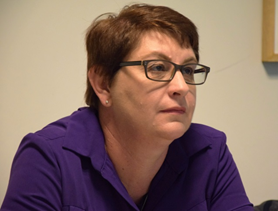Following the success of the first symposium in 2015, it was clear that advancing teacher education for inclusion should be a key focus of higher education institutions, with the support of the Departments of Basic and Higher Education and practitioners. In collaboration with the Flemish Association for Development, Cooperation and Technical Assistance (VVOB) and with the sponsorship of the European Union (EU), this second symposium became a reality.
The premise of the symposium was that “inclusion means creating a school where all children feel welcome, where difference is recognised and accepted and each child’s needs are identified and support is in place to accommodate these needs”.
A key strategy for ensuring the quality training of pre-service and in-service teachers to become fully inclusive in their teaching is to bring teacher educators, researchers, practitioners and policy makers together to share knowledge and experience in order to ascertain a constructive way forward in classrooms and lecture halls.
Prof Mirna Nel, research professor and project leader of the subprogramme Towards Inclusive Education at Optentia and co-ordinator of the symposium, defines inclusion as creating a school where all children is seen as a child and human being first with his or her own specific needs and is NOT stereotyped and/or labelled because of race, poverty, illness, disability or any other barrier to learning.
The symposium welcomed international keynote speakers Prof Seamus Hegarty from the University of Warwick in Coventry, England and Dr Marijke Wilssens from the Artevelde University College in Ghent, Belgium, who gave an informative international perspective.
Dr Moses Simelane, the director-general for inclusive education of the national Department of Basic Education, presented a broad view on current national policies relevant to inclusive education, and the progress of implementation.
National keynote speakers, Prof Elizabeth Walton (Wits) and Prof Mirna Nel (NWU), asserted that transformation is needed in teacher education for inclusion, emphasising that even though theory must receive more attention, the help of education departments and practitioners is needed to better prepare future teachers for the practice.
Ms Robyn Beere, the director of Inclusive Education South Africa, shared examples of best practice in the field of continuous professional development of teachers towards inclusive practice. Prof Dikeledi Mahlo from UNISA concluded the keynote presentations by emphasising that all teachers can teach all children.
Inspirational paper presentations from researchers and teachers also shared valuable research findings and experience with delegates.
An important outcome of this symposium was that policymakers, researchers and practitioners will form working groups for continuous collaboration to improve teacher education for inclusion.
Optentia is committed to developing and organising knowledge for the optimal expression of individual, social and institutional potential, with specific interest in the African context.
The subprogramme Towards Inclusive Education within the focus area aims to enable every teacher to teach in such a manner that all learners’ needs are accommodated during teaching, learning and assessment. A current EU funded project in this subprogramme, in partnership with the VVOB as well as other South African universities, is in the process to determine how inclusive education can be infused into the foundation and intermediate phases of the BEd programme, and to enable lecturers to model and impart an inclusive pedagogy.

Prof Mirna Nel
